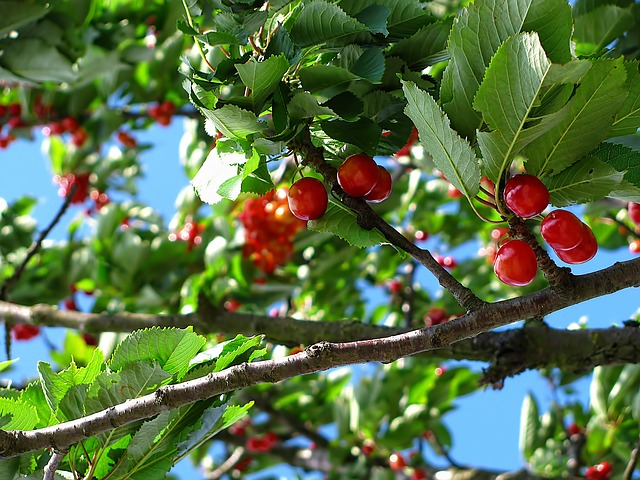
Until a few years ago, Northwest orchard farmers weren’t even talking about little cherry disease. Yet according to a recent NPR report, this agricultural foe is responsible for the destruction of cherry trees across Washington and Oregon.
The disease does what its name suggests: it causes stunted fruit growth resulting in small, unripe cherries with lower sugar content (producing fruit that doesn’t taste very good). Unfortunately, the disease doesn’t make itself apparent until harvest time—when it’s already too late. Farmers are forced to burn trees or bulldoze them before starting over. However, replanting an orchard has its own risks as the virus can come back through the roots.
Spread Through Insects
Little cherry disease almost wiped out British Columbia’s cherry industry back in the 1930s and 1940s when over 60,000 cherry trees had to be destroyed. It is spread primarily through insects, and recent studies in Washington State show that two different species of mealybug—apple and grape—are at work, making it even more difficult to control through spraying.
Scientists say that the situation with little cherry disease in Washington and Oregon will get worse before it gets better. Entomologists and fruit growers are working together to find ways to manage the disease and to minimize crop damage.
Unfortunately, mealybugs are difficult to detect. They are also notoriously hard to control with insecticide sprays. Growers are advised to be aggressive in removing infected trees and to replant with trees that have been certified as virus-free.
Rock Dust & Other Innovative Approaches to Pest Management
Unfortunately, cherry growers are not alone in their battle against predatory pests. Commercial growers of agricultural crops everywhere seek innovative solutions that go beyond harmful (and increasingly ineffective) chemicals. These include biological controls such as the use of natural predators, and pheromones that disrupt insect mating patterns.
Increasingly, growers are integrating all-natural rock dust into their pest management plans. Tso-Cheng Chang is an organic farmer in Amherst, Massachusetts who grows a wide variety of vegetables including asparagus, bok choy, string beans, bean sprouts, bitter melons, and green peppers. He applies rock dust to his crops annually to help boost their resistance to aphids and Japanese beetles.
Volcanic basalt is particularly effective as it is high in soluble silicon (Si), a key component of cell walls that improves plant structure and increases resistance to pests and disease. Plants that don’t have access to soluble silicon in the soil are stressed out, weak, and unable to resist injuries causes by insects and pests.
Bob Wilt is the owner of Sunset Valley Organics, a family farm in Oregon that uses Cascade Minerals Remineralizing Soil Booster (made entirely of volcanic basalt) to grow nutrient dense organic berries that require minimal processing. Unlike many other berry growers, Sunset Valley Organics’ blueberry crops haven’t been affected by the dreaded spotted wing drosophila (SWD). Bob has never had to spray against the insect and believes that rock dust helps grow healthy plants that are pest and disease free.
Can Cascade Minerals Remineralizing Soil Booster help in the battle against little cherry disease? While we haven’t conducted any controlled trials, we are convinced that the healthier plants and higher yields observed in other crops show that volcanic rock dust can be part of an effective, integrative and non-chemical approach to managing pests and preventing further damage to our region’s precious crops.
###
References:
“Little cherry disease is spreading: Both apple and grape mealybug, vectors of the virus, were recently found in cherry orchards,” Good Fruit Grower, 11/18/13
“The promise of new technology for regional control of navel orangeworm,” Western Farm Press, 1/22/15
“How rock dust boosts plants’ resistance to aphids and other pesky pests,” Cascade Minerals Blog, 4/4/15
“Sunset Valley Organics makes Cascade Minerals part of its healthy soils program,” Cascade Minerals Blog, 8/6/15
